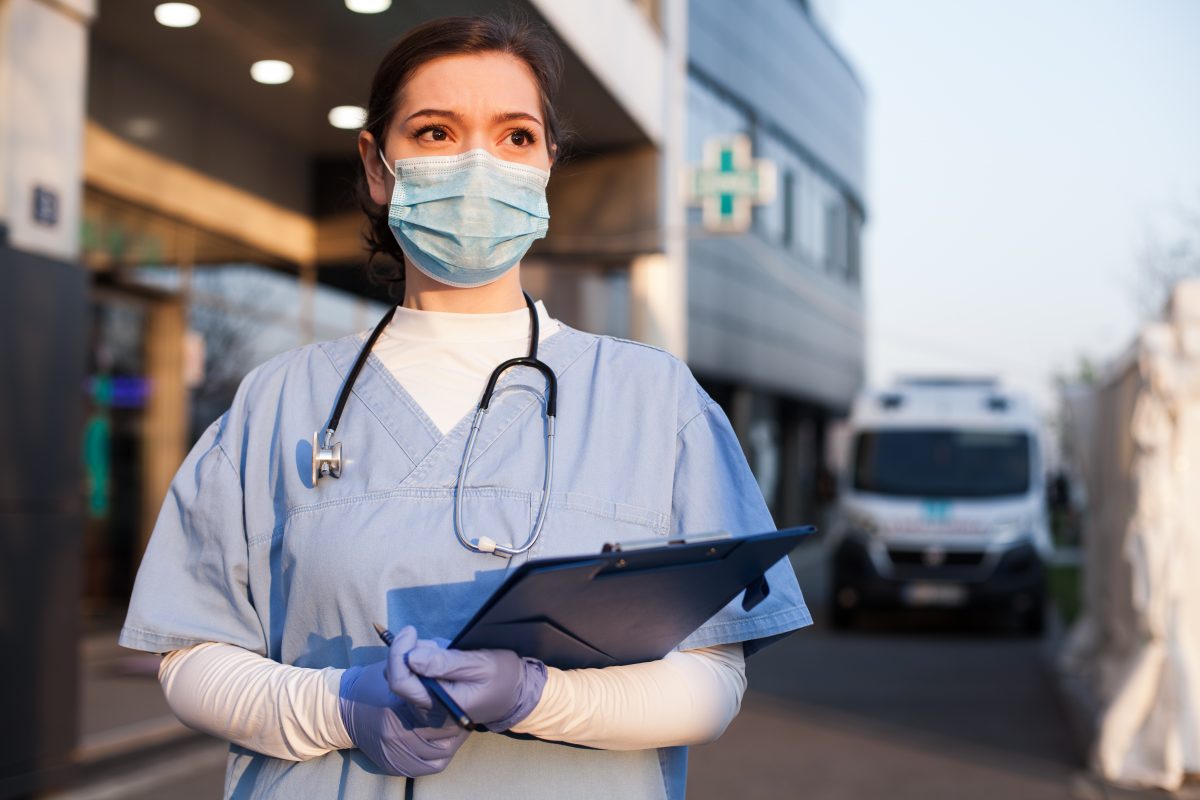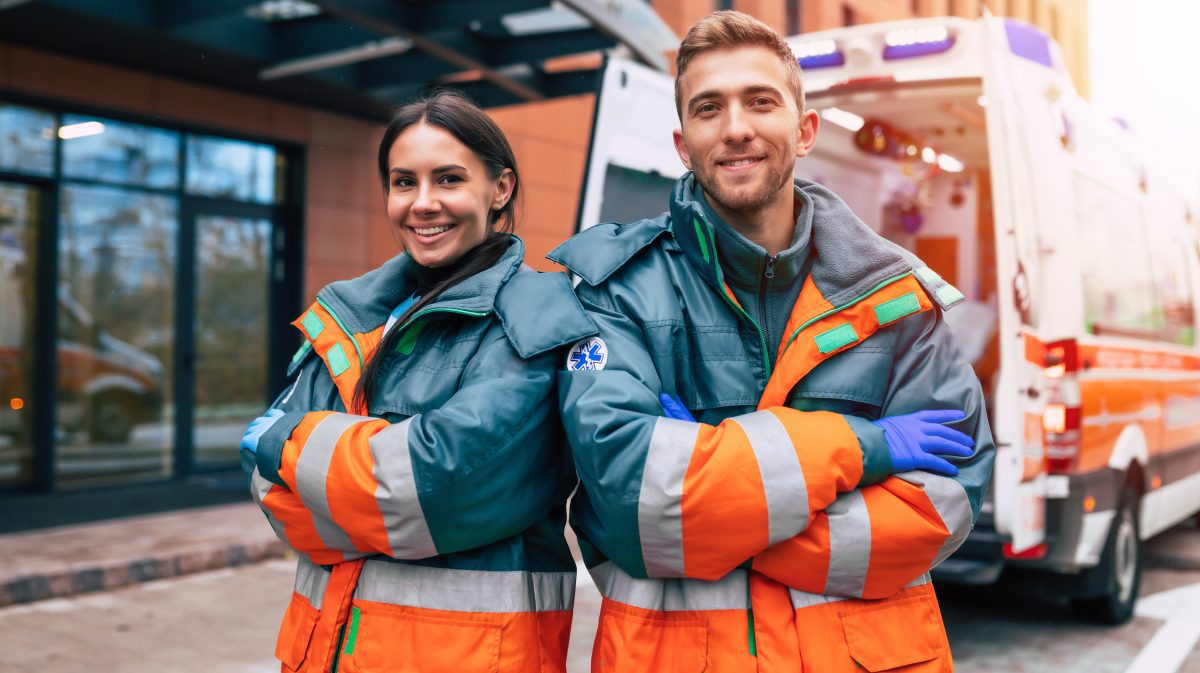The COVID-19 pandemic has caught everything by storm since its first onslaught in 2020. While governments implement massive vaccination and other measures to ease the problem, the pandemic has continued until today. Among those affected, the first responders have the most exposure to the virus. Because of this, a significant fraction of these people have been hospitalized. Some even succumbed to the disease.

Suppose you’re a frontliner, such as a doctor or a disaster response worker. In that case, you may have already adjusted your lifestyle to be protected against this viral illness. Yet, if you’re new to these situations, you may want to know more about how to stay healthy during this pandemic. For that purpose, here’s an article to guide you. So, read on!
What Hazards Do First Responders Face During The Pandemic
The pandemic poses a lot of risks to people. The more they’re outside, the higher exposure they have to the virus. The more they physically interact with others, the higher the chance they catch the illness. If you want to know more about the specific dangers you may bump into, here are some of the risks associated with the COVID-19 pandemic you should know more about:
- Health Hazards
COVID-19 virus mainly triggers respiratory illnesses, such as pneumonia. In addition, it aggravates a person’s already existing medical conditions, such as kidney diseases and heart problems.
- Work-Related Accidents
Frontliners may be involved with road accidents and falls because most are in a rush, especially in emergencies. Because of these, the first responders may end up injured.
7 Ways Of Staying Safe During The Pandemic
Since the COVID-19 pandemic mainly affects health, keeping oneself healthy is an excellent way of staying safe and protected. As the cliche goes, prevention is better than cure. If you want to optimize being healthy, here are some of the proven and reliable ways on improving health and braving up this pandemic:
1. Research About The Victim’s Compensation Fund
Knowing the bits and pieces of the Victim’s Compensation Fund (VCF) is a way of preparing yourself financially. Contracting COVID-19 infection may push you to financial limits and require you to seek claims like victim’s compensation. If you want to ease your financial burden caused by the pandemic-triggered hospitalization, you may take a look at this website or go to similar firms.
For this purpose, you may also need to prepare complete documents to expedite processing, including the following:
- ID or other documents showing that you’re a first responder
- Hospital admission and discharge papers showing that you’ve contracted COVID-19 infection
- Medical receipts and related expenses
2. Wear Safety Clothing
Occupational safety clothing is a necessity in any workplace. If you’re a pandemic responder, you may need to wear clothing that reduces exposure to the virus. Below are some of them:
- Personal Protective Equipment (PPE)
Wear a PPE that’s durable and has a flexible design. Durable PPE is hard-wearing and tear-resistant. On the other hand, flexible design makes the clothes fit better. With durable PPE, the responder is protected against exposure to droplets that infected persons may cough out. Yet, to optimize safety, the responder may need to change their PPE every after possible exposure.
- Facemask
The finest facemasks are made of two tightly woven fabrics. They may also have a high thread count that prevents the inhalation of other people’s droplets. Apart from these, the facemasks should be easy to fit over the nose and mouth and have durable nose wire and earloops. If you’re a responder, you may also wear multiple facemasks—two disposable facemasks or one disposable mask and one cloth mask.
- Goggles
Goggles are worn to keep your eyes protected against possible viral infections. This eyewear should be light yet durable. They should also fit perfectly and be thick enough to resist punctures.
- Gowns
You may need to wear gowns over your clothes before covering yourself with a PPE. This could be uncomfortable during the first time wearing them. Yet, they’re necessary to add an extra protective layer against exposure to the virus.
- Gloves
You may wear new, disposable gloves every time you respond to a COVID-19-related situation. If you want to be optimally protected, you may need to consider the gloves’ tensile strength, elasticity, and puncture resistance. In addition, you may choose latex gloves as they’re likely to fit better than other types.
3. Observe Health Protocols
Following health protocols may be a hackneyed phrase for first responders. After all, they know better about the situation. However, some of them become complacent over time, especially in places they’re comfortable with.
If you’re a first-time responder, you may check the following to get yourself reminded about these essential points:
- Wear protective masks all the time, especially when working outside or in the presence of a COVID-positive patient.
- Follow cough etiquette. Sneeze with your elbow, handkerchief, or tissues. When coughing in a crowded place, transfer to an empty space.
- Bring a hand sanitizer always, and sanitize regularly or every after touching surfaces in public places and conveyances.
- Keep a minimum of 1.5 meters away from other people, especially the unvaccinated ones.
- As much as possible, use disposable utensils or bring your own.
- If you’re in a high-risk area, wear your protective clothing all the time.
- Wash your hands regularly.
- If you feel sick, stay home and report your situation to your immediate supervisor.
Whether or not you’re fully vaccinated, you may need to follow these safety protocols. Doing so reduces the risks that may affect your health. When you’ve become used to them, your actions already become mechanical as they become parts of your habit.
4. Take Nutritional Supplements
Since weak immune systems are the typical targets of the virus, taking nutritional supplements could be necessary. Primarily, they could increase a person’s resistance to bacteria and viruses. If you’re a responder, you may consult your doctor about the possible supplements that may improve your immunity.
In many cases, people’s supplements include the following:
- Ascorbic acid or Vitamin C: This regulates the proper functioning of the immune system. Apart from this, it aids in healing wounds and absorbing iron.
- Zinc: This boosts a person’s immunity and helps in managing blood sugar.
- Amino acids: These help in developing muscles, processing nutrients, and improving alertness.
- Other vitamins and minerals: These counter typical nutrient deficiencies.
5. Have Enough Rest
The best way to rest for first responders is having complete hours of sleep. It may mean 7-9 hours of uninterrupted sleep. While this could be challenging to responders as emergencies happen in unusual hours, they still need to follow an excellent sleeping pattern.
Having fewer hours of sleep could weaken your immunity. In addition, sleep deprivation may also cause your blood pressure to rise. Furthermore, you may start having heart problems and become prone to diabetes. These are the conditions that could complicate your health when you contract a COVID virus.
You may also take power naps—typically 15 to 30 minutes, to rest your body and have a more alert system. Apart from the common types of rest, you may also need to unwind by doing creative activities, such as painting or you could take some minutes for meditation.
6. Healthy Diet And Drink Plenty Of Fluids
After waking up, you may need to have an easy-to-digest and nutritious meal. Typically, you may have a low glycemic diet, including:
- breakfast cereals, such as bread, bran flakes, and pasta
- fruits, such as apples, apricots, pears, and plums
- vegetables, such as carrots, broccoli, celery, and cauliflower
- eggs and low-sugar drinks
During your shift, you may take protein-rich snacks. These food items could increase alertness and help develop your muscles. For more ideas of protein-based meals, check out the following:
- tinned tuna
- yogurt dips
- hard-boiled eggs
- celery sticks
- beef jerky
- turkey roll-ups
Before you sleep, you may take some meals to prevent waking up and working hungry. You may take light night meals or protein-based snacks. To optimize your diet, you could have natural fruit drinks. Yet, you may need to take 8-10 glasses of water a day for cleansing and better digestion.
7. Exercise Regularly
First responders need to be physically fit to do their best in their tasks. Aside from proper fitness, regular exercises could improve alertness and acuity. For these goals, you may check the following exercises:
- dynamic warm-ups
- mobility training
- lateral step-ups
- side planks
- dumbbell workouts
If you want a more convenient exercise pattern, you could ask a certified fitness instructor to guide you. You may incorporate more exercises that would improve your upper body strength, cardio, and respiratory system. This way, you could work better even in high-risk areas and situations.
Final Thoughts
If you’re a responder, you may need to be holistically healthy and ready. With it, you could work safely even in dire situations. Apart from keeping yourself protected, being fit allows you to save other people as you won’t pose health risks that may affect them.
The insights from this article could help you create a plan for yourself. While they don’t guarantee to keep you healthy at all times, they’d certainly reduce the risks involved in your job. For better results, you may customize some of the tips to make them a better fit for you. Above all, apply those that are proven and helpful to you and the others.
